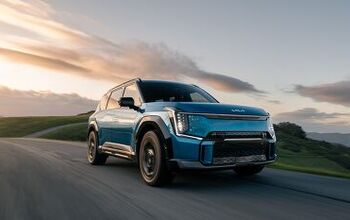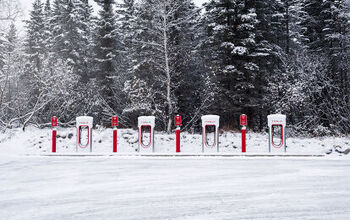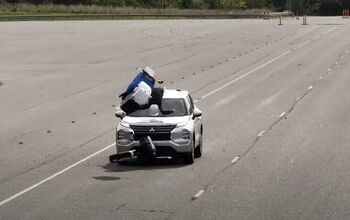Plug-in Hybrids to Power California Electricity Grid?
Davisenterprise.com is reporting a strange (if entirely theoretical) wrinkle in the potential for plug-in electric hybrids: power generation. Pacific Gas & Electric Co. is "readying a program" whereby the utility company could draw power from plug-in hybrids plugged into the power grid. The first suggestion: if the cars were equipped with solar panels they could sell power back to the power company. OK, right, second idea: tap into the connected cars to smooth-out power generation during spikes in demand. Kyle Aarons, project manager in PG&E's Clean Air Transportation Department (doesn't it do that by itself?) explains: "Let's say a bunch of people switch on their lights all at once and so demand for electricity spikes up in a very short amount of time. Instead of having one of our power plants ramp up a little bit or opening the gate a little bit more on a dam, we can maybe use energy from (the cars') batteries to just, sort of, meet that little spike and then allow our power plants to ramp up more evenly, and it's more cost-effective when we do it that way.” Aarons promises that the electric company would put the power back, and admits this system "likely wouldn't be available for several years."
More by Robert Farago


































Comments
Join the conversation
This is one of the reasons that Ford is giving its plug-in Escapes to California Edison of all places. Separate from testing and consumer feedback, Ford and Edison can look at ways to optimize the grid. Edison assumes part of the risk for the development of PHEVs and in return has a grid optimized to accept them (either just as drains or as ubiquitous powerplants to level supply shocks). It's not an easy problem, but if executed right, the money saved by power companies during times of high energy demand (when the plants ramping up quickly are very inefficient and risk overloading parts of the grid) could be well worth it to drivers who get rebates for their contribution. It is likely that we'll see some initial studies from both Ford and Edison (and I would assume Toyota or GM and other power companies) by the end of the decade.
Do we not already have that capability here in San Diego with SDG&E? Many people have solar panels on their homes that are set up to run the electric meter backwards when they are supplying energy to the grid. Seems to me that it would be indistinguishable to the utility if the power came into the grid from hybrid car batteries via a static inverter.
Let's see, we are going to rely on how many little fossil fuel powered engines to take up the slack on the grid caused by the intermittentcy of solar and wind power? And the they are going to recharge overnight when the sun is not shinning? And how much fossil fuel will they consume? And what will be their production of various pollutants? This is an idea that goes nowhere.
Nonce is absolutely correct, this is an absurd idea, and one that is passing through the press lately with no pause for critical thought (seen recently in the Wall Street Journal, for example). (A) this is the literal equivalent of burning gasoline to generate electricity. (Somehow people don't get this.) You partly deplete the car's battery, then it'll have to burn gasoline it would not otherwise burn in order to get home. That means this incremental electricity for the grid is indeed gasoline-generated electricity, at least partly. Would people like it if the utility announced it was installing huge gasoline-burning generators? (B) If it were economical overall to store electricity in batteries for peak release, then every utility in the world would already be doing this. Duh. Maybe they'd even use batteries that were optimized for this very purpose and not ones attached to 4 wheels and a transmission. (C) In view of (B) above, this is really a plot whereby utilities want to shift the capital burden of buying those batteries to the unsuspecting consumer. That way, it IS economical -- for the utility; certainly not the car owner, who'll have to buy more gas and who'll wear out the battery much sooner. (D) And before you buy the nonsense that often accompanies this kind of news about how people will become rich selling peak electricity to utilities from their car battery -- just apply a little common sense. (E) And if this DOES work, hell, I'll just stash a bunch of car batteries in my garage and plug them in! Wheee!